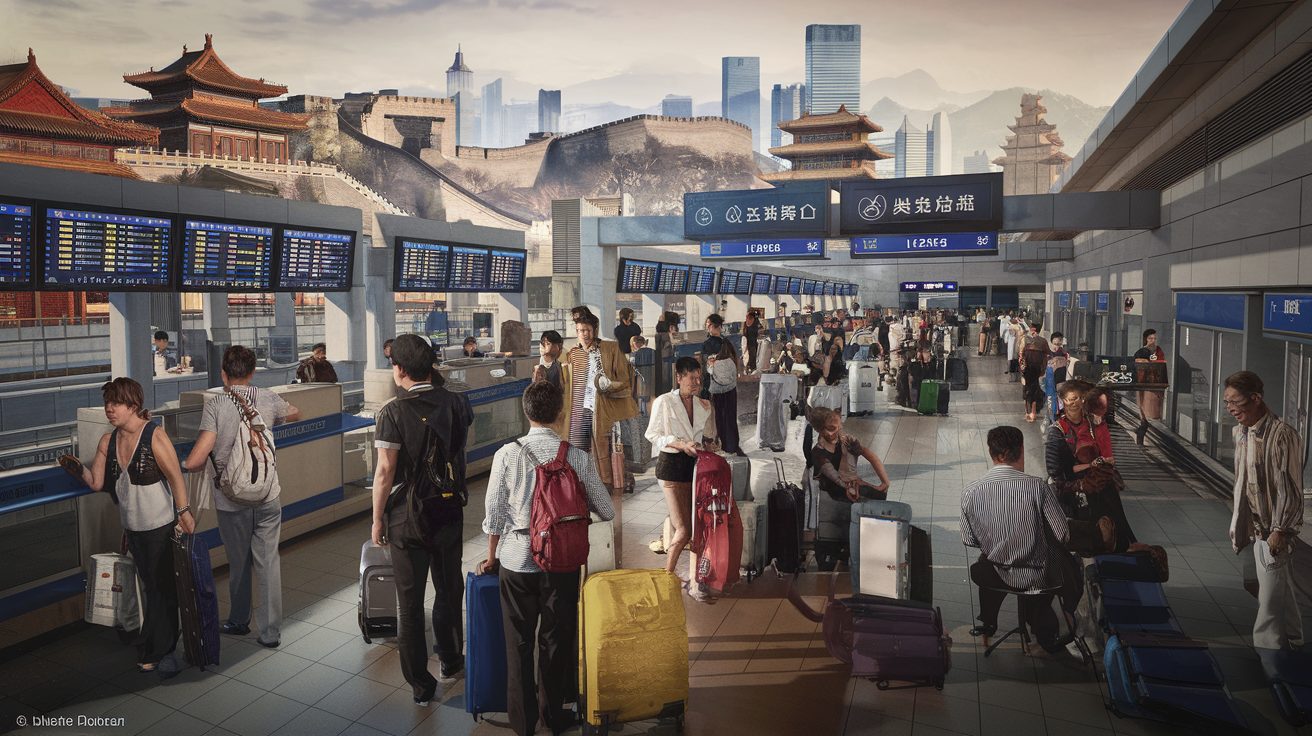In recent years, China has embarked on a complex journey regarding its visa waiver policies, oscillating between maintaining strict regulations and embracing more open access for international travelers. As the global landscape shifts, the Middle Kingdom has begun to recognize the potential economic and cultural benefits of welcoming foreigners. However, the intricacies of its policy changes often leave many visitors in a state of uncertainty, particularly among those navigating the evolving restrictions and opportunities presented by the Chinese government.
China’s approach to visa waiver policies is currently marked by uncertainty, as the nation navigates the complexities of reopening its borders after years of pandemic-related restrictions. While the country aims to promote tourism and international relations, the implementation of these policies remains inconsistent, creating confusion among potential travelers and businesses alike.
Shifts in Policy
In recent months, China has made significant attempts to redefine its stance on visas for foreign visitors. By announcing a series of measures intended to facilitate access to the country, it indicates a willingness to embrace international tourism once more. However, this apparent relaxation of stringent regulations is juxtaposed with ongoing uncertainties regarding the longevity and stability of such changes.
Targeted Nationalities
The recent decision to extend visa-free access to travelers from 38 different countries starting November 30, 2024, appears to be a progressive move. Notably, this decision allows individuals from nations such as Finland and Iceland to enter the country for an extended period. Yet, the selection process for beneficiary nationalities seems to lack clarity, raising questions about the criteria used to determine eligibility.
Business and Tourism Stimulation
The objective behind expanding the visa waiver program is not only to attract tourists but also to stimulate business activities within China. The ability for international visitors to combine leisure with work is a vital component for enhancing the nation’s economic standing. Although there is a strong intention to encourage such exchanges, the lack of transparent and cohesive policies may hinder efforts to achieve these goals.
International Relations and Cooperation
China’s move towards a more open visa approach is indicative of its aim to strengthen international relations. While it seeks to welcome foreign tourists and business partners, the inconsistency in applying these policies creates apprehension among nations, especially those with historically tense relations, such as Japan. This context further complicates the diplomatic landscape, which can influence the overall effectiveness of the visa waiver initiatives.
Future Outlook
As observed, the landscape of visa policies in China is evolving, yet remains fraught with uncertainty. The increasing number of foreign visitors entering under the new regulations showcases potential benefits for both the economy and cultural exchange. However, without a steadfast commitment to maintaining these visa waivers, stakeholders may find it challenging to plan adequately. The focus will need to remain on ensuring that policies are sustainable and aligned with China’s broader diplomatic goals.
- Variable Policies: Changes in visa rules frequently disrupt travel planning.
- Economic Objectives: Visa waivers tied to the goal of boosting tourism and foreign business.
- Geopolitical Factors: Visa regulations influenced by international relations and tensions.
- Unpredictable Implementation: Announcements followed by delays or abrupt policy shifts.
- Selective Beneficiaries: Focus on specific countries based on diplomatic relations.
- Mixed Public Perception: Concerns regarding security vs. economic benefits of increased visitors.
- Ongoing Adaptation: China continues to adjust policies to reflect evolving global landscapes.
- Impact of COVID-19: Pandemic led to stricter regulations which are gradually lifting.
- Future Projection: Uncertainty remains as global dynamics can quickly alter visa strategies.

China is evolving its visa waiver policies, aiming to attract more foreign visitors by simplifying entry requirements. Starting November 30, 2024, citizens from 38 countries will enjoy visa-free access for up to 30 days, a significant increase from previous regulations. This decision is part of a broader strategy to revitalize the tourism sector and stimulate the economy. However, the approach towards visa exemptions remains inconsistent, as seen in the mixed responses from various countries, leading to uncertainty among potential travelers.

Hello! I’m Elisa, a 45-year-old travel companion with a passion for exploring new places and cultures. With years of travel experience under my belt, I thrive on creating memorable journeys for my clients. Let’s embark on an adventure together!





